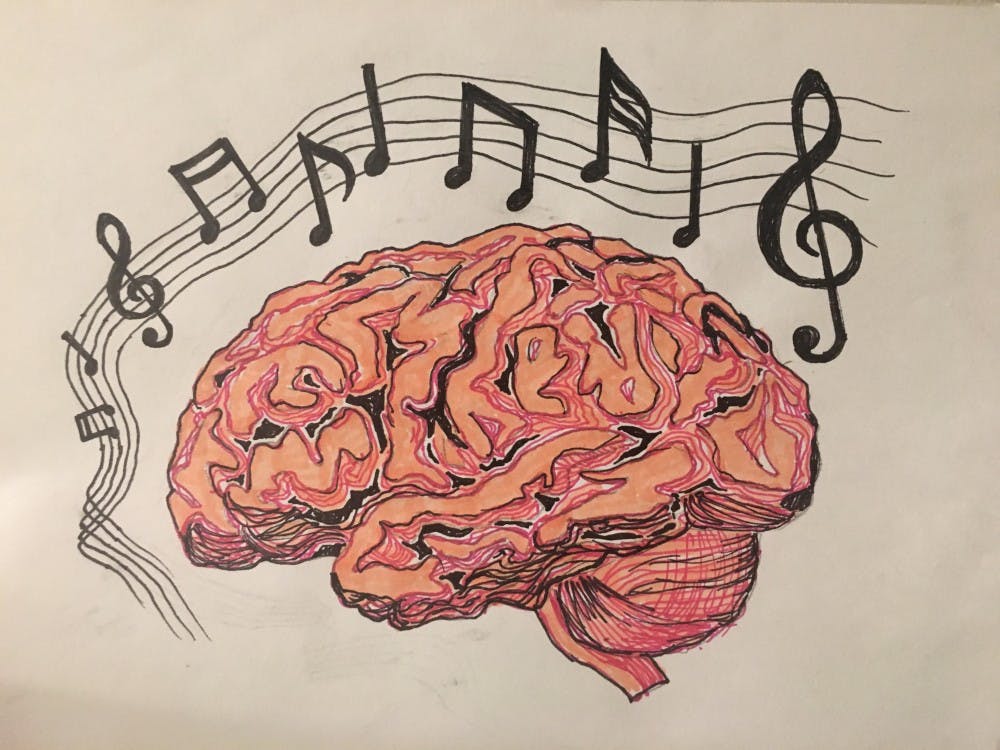It is popular among college students to claim that music can help with focus. But, admittedly, it kind of doesn’t make much sense—shouldn't music distract from getting shit done? The simple statement “music helps study” might not be very helpful when arguing with your parents—you need some scientific proof.
Research conducted by Maria Witek and her colleagues implies that we tend to have two attention systems—a conscious one that can be shifted towards things we want to concentrate on, and a unconscious one that is dominated by our involuntary senses. Dependent on the information our senses receive, our unconscious attention system can be easily distracted.
For example, imagine you're taking an important exam, but the person sitting next to you has been constantly sniffling. You remind yourself not to get distracted, yet can’t help it. Those innocuous little noises in our surroundings can be very distracting, especially when one tries hard to concentrate on important things. But a harmonious background can prepare you well for study mode.
The type of music is important as well. A set of research has indicated that Mozart’s music can elicit a short–term improvement on certain mental tasks known as “spatial–temporal reasoning," this phenomenon is termed the “Mozart Effect.” The tempo and beat of songs can also aid concentration; think of how workout music motivates you mid–run.
Meanwhile, a study by the University of Pennsylvania Health System and the University of Maryland in Baltimore reported an improvement among the radiologies in their work and mood when listening to baroque classical music. It’s also true that video game soundtracks can create an immersive environment that helps players get to a higher level. The music is meant to facilitate tasks that require constant attention and focus, and while most video games don't have baroque classical soundtracks, the science works with the same principles.
Jayden Lee (E ’21) likes to listen to instrumental music when he is reading. But if it's anything STEM related, he can listen to the music with lyrics he usually listens to, such as pop, R&B, and some other mainstream music. He personally doesn’t find that listening to music benefits his study significantly, but it definitely has the power to make work less dry and more enjoyable. When describing his study experience with listening to music, he said, “I would shake my head, and maybe dance a little bit while I’m working. It’s more pleasurable experience.”
Xintong (Bess) Liu is a second year graduate student in musicology at Penn. Currently she is also one of the professors teaching "MUSC 030: 1000 Years of Listening." She usually listens to classical music during work or study. Music for her is a perfect marriage of science and humanities. Based on her knowledge in the field of musicology, she believes each individual has a different study music preference. So as long as it's the music that you feel specifically drawn to, it can facilitate you into the preparation mode for concentration study.
So, next time your parents tell you to turn the music off and focus, just turn up that Mozart and keep on working.

